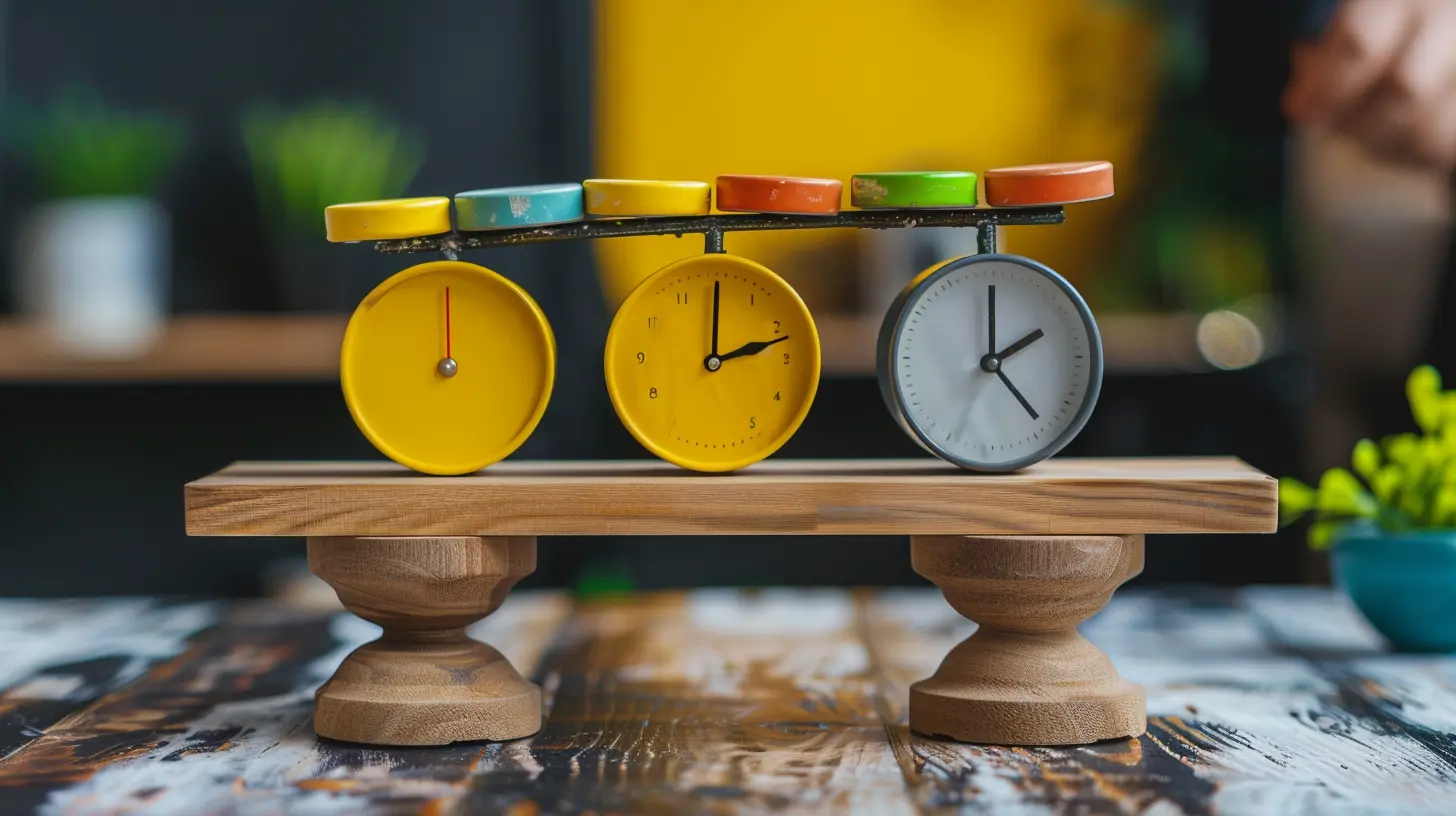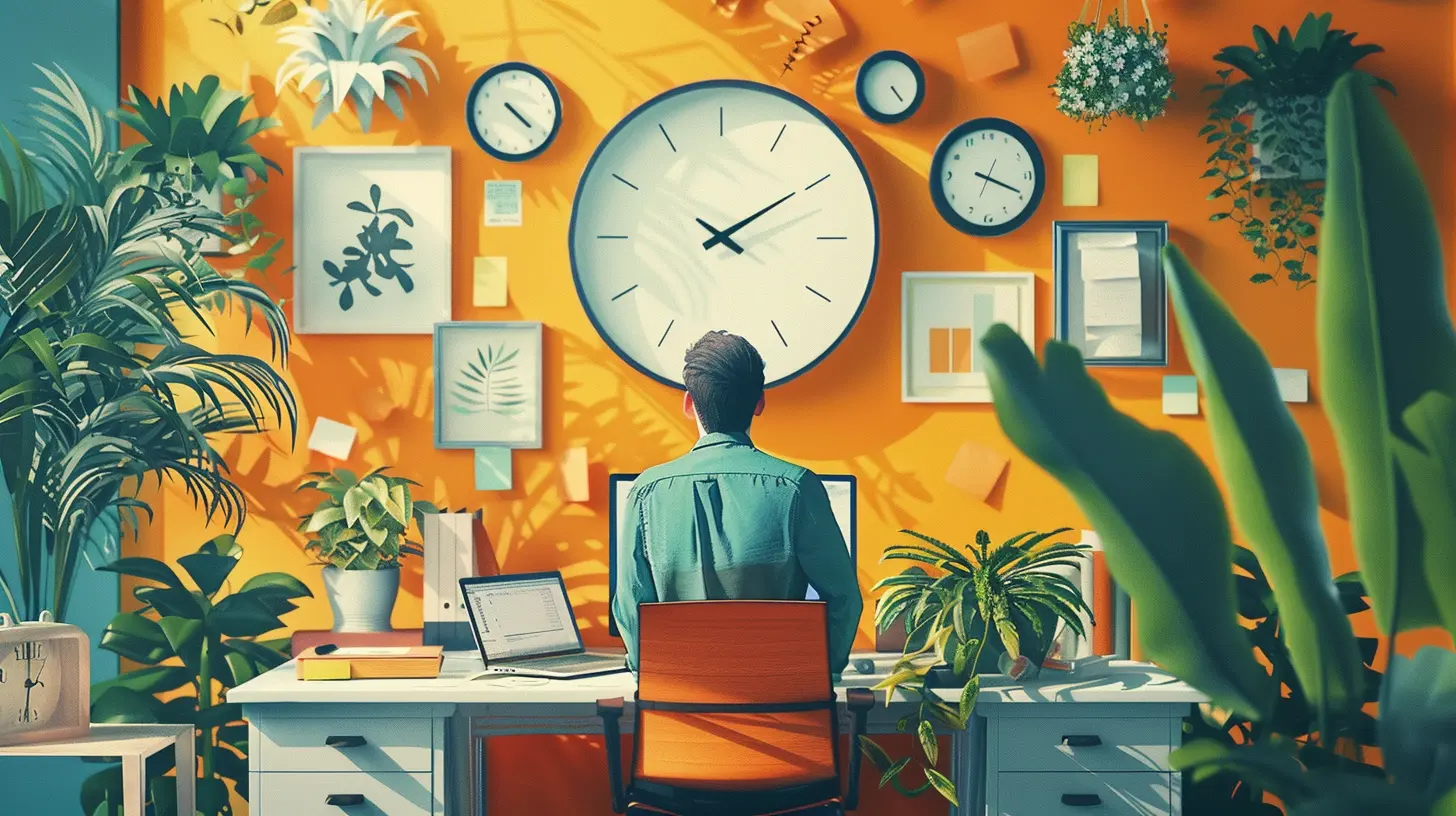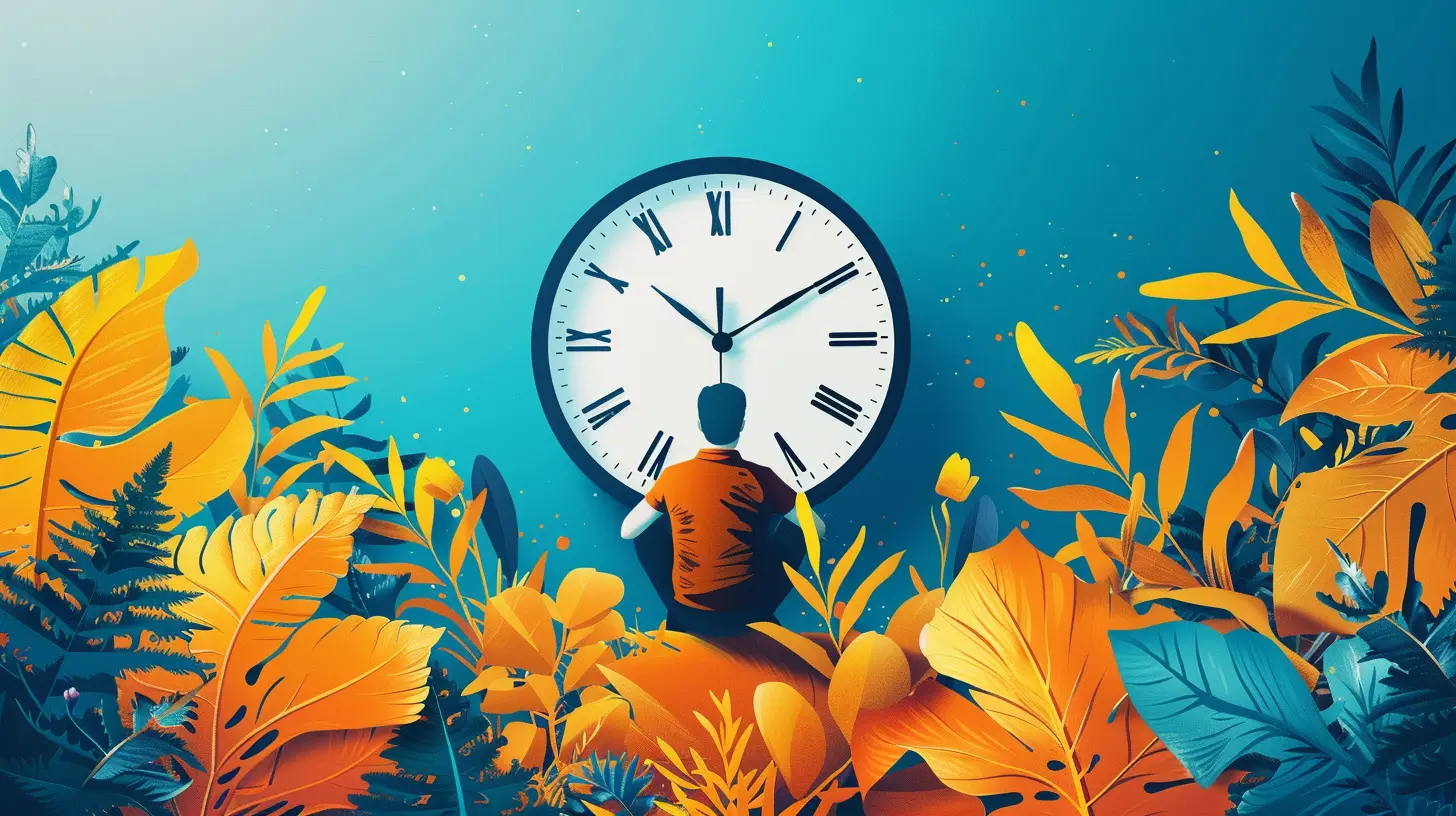Balancing Work and Rest: Keys to Sustainable Productivity
3 June 2025
Let’s face it: we live in a world where the grind is glorified. “Hustle harder,” “Rise and grind,” “You can sleep when you’re dead”—sound familiar? Sure, hard work is important, but here’s the kicker: without proper rest, your so-called grind will eventually grind you down. Balancing work and rest isn’t just some feel-good mantra—it’s the secret sauce to long-term productivity and happiness.
Now, before you roll your eyes and think, "Yeah, yeah, I’ve heard it all before," stick with me. This isn’t some generic fluff. I’m about to break it down so you’ll not only understand why this balance matters, but you’ll also have practical strategies to make it happen. Sound good? Let’s dive in! 
Why Balancing Work and Rest Is a Non-Negotiable
When was the last time you felt completely refreshed—mentally, physically, and emotionally? If the answer is “Umm, I don’t remember,” then Houston, we have a problem.Here’s the thing: productivity isn’t about burning the midnight oil every day. It’s about working smart, not just hard. And rest? It’s not a luxury. It’s a freakin’ necessity. Imagine trying to drive a car on an empty tank. You wouldn’t, right? So why do we try to run our bodies and minds on empty?
The Science Behind It
Your brain isn’t a machine. It’s a complex system that demands balance. Studies show that prolonged work without breaks can lead to burnout, chronic stress, and even physical health issues like heart problems. On the flip side, taking regular breaks boosts creativity, improves focus, and enhances problem-solving skills.Think of rest as a reset button. It allows your brain to process information, consolidate memories, and recharge for the next big challenge. 
Signs You’re Out of Balance
Before we jump into the how of balancing work and rest, let’s tackle the why. If you’re wondering whether you’re teetering on the edge of burnout, here are some red flags:- You’re Always Exhausted: No matter how much you sleep, you still feel drained.
- Zero Motivation: That fire you once had? Gone. Work feels like an endless chore.
- Poor Focus: You stare at your screen for hours but accomplish nothing.
- Physical Symptoms: Headaches, back pain, or even frequent colds could be your body screaming for rest.
If any of this sounds familiar, it’s time to hit the brakes. 
The 80/20 Rule of Productivity
Let’s talk about a game-changer: the 80/20 rule, also known as the Pareto Principle. This rule states that 80% of outcomes come from 20% of efforts. Translation? You don’t have to be busy all the time to be productive.Instead of trudging through hours of work, focus on your high-impact tasks—the ones that move the needle the most. Work smarter, not harder. This leaves more room for intentional, guilt-free rest. 
Types of Rest You Actually Need
Rest isn’t just about crashing on the couch and binge-watching Netflix. (Although, don’t get me wrong, that’s valid sometimes.) There are several types of rest, and neglecting any of them could be killing your productivity.1. Physical Rest
The most obvious one. This includes quality sleep, short naps, and activities that let your body recover, like stretching or yoga.2. Mental Rest
Ever have a tough workday and feel like your brain is in overdrive? That’s mental fatigue. Give your mind a break by unplugging, meditating, or just zoning out for a while.3. Social Rest
This doesn’t mean ghosting your friends (unless they’re draining your energy). It simply means spending time alone to recharge when needed.4. Creative Rest
If your job requires out-of-the-box thinking, you need creative rest. This could mean stepping away from work to enjoy art, music, or a walk in nature.Practical Strategies to Balance Work and Rest
Alright, enough theory. Let’s get into the nitty-gritty. What can you do today to strike that balance?1. Time Blocking
This is a game-changer. Divide your day into chunks and assign specific tasks or activities to each block. Include time for rest—yes, schedule it like you would a meeting.For example, work in 90-minute intervals followed by a 15-minute break. This is known as the ultradian rhythm and it helps your brain stay sharp without crashing.
2. Set Boundaries
If you’re working from home, it’s easy to blur the lines between work and rest. Set a firm schedule and stick to it. No emails after 6 PM. No checking Slack during dinner. Period.3. Practice Active Rest
Not all rest is passive. Activities like light exercise, cooking, or even gardening can help recharge your batteries without making you feel lazy. Find what works for you.4. Say No
This one’s tough but vital. You don’t need to say “yes” to every project, meeting, or social event. Protect your time like it’s your most valuable asset—because it is.The Power of Micro-Breaks
Ever hear of the Pomodoro Technique? It’s a productivity hack where you work for 25 minutes and then take a 5-minute break.Why does this work? Because it gives your brain periodic rests, which keeps you from hitting that dreaded afternoon slump. Think of it as fueling up before the tank is empty.
Overcoming Guilt Around Rest
I get it. Resting can feel like slacking off, especially when society constantly pushes the “hustle” narrative. But here’s the truth: rest isn’t lazy—it’s productive.When you rest, you’re not “falling behind.” You’re sharpening the axe so you can cut through the workload faster and effectively. Remember, you can’t pour from an empty cup.
A Day in the Life of Balanced Productivity
Let’s paint a picture of what sustainable productivity might look like:- Morning: Start your day with a short mindfulness exercise or a quick stretch. Tackle your most challenging tasks first—your brain is freshest in the AM.
- Midday: Take a real lunch break. Step away from your desk, go for a walk, or eat mindfully.
- Afternoon: Use time-blocking to complete smaller, less demanding tasks. Don’t forget those micro-breaks!
- Evening: Wind down without screens. Read, journal, or simply relax. Prioritize 7-9 hours of quality sleep.
The Ripple Effect of Balance
Here’s the beauty of learning to balance work and rest: it doesn’t just make you more productive, it makes you happier. You’ll have more energy for your family, hobbies, and passions. Your work will improve, sure, but so will your life.At the end of the day, isn’t that what we’re all striving for—living, not just existing?
all images in this post were generated using AI tools
Category:
ProductivityAuthor:

Remington McClain
Discussion
rate this article
3 comments
George Parker
Finding the right balance between work and rest is like mastering a dance—sometimes you lead, sometimes you follow! Remember, taking breaks boosts creativity and energy. Embrace those moments of rest; they’re not just a pause but a vital part of your productivity journey. Keep twirling! 💃✨
June 6, 2025 at 11:11 AM

Remington McClain
Absolutely! Finding that rhythm is essential for long-term productivity. Embracing rest truly fuels creativity and efficiency. Thank you for the lovely metaphor! 💖
Sophia Kane
Thank you for addressing such an important topic. Striking the right balance between work and rest is crucial for our well-being and productivity. Your insights remind us that nurturing ourselves is essential for achieving sustainable success in both our personal and professional lives.
June 5, 2025 at 2:24 AM

Remington McClain
Thank you for your thoughtful comment! I'm glad you found the insights valuable—finding that balance is indeed key to our overall well-being and productivity.
Paxton Huffman
Prioritize rest to enhance long-term productivity effectively.
June 4, 2025 at 4:13 AM

Remington McClain
Thank you for your insight! Rest is indeed essential for maintaining sustainable productivity and overall well-being.



